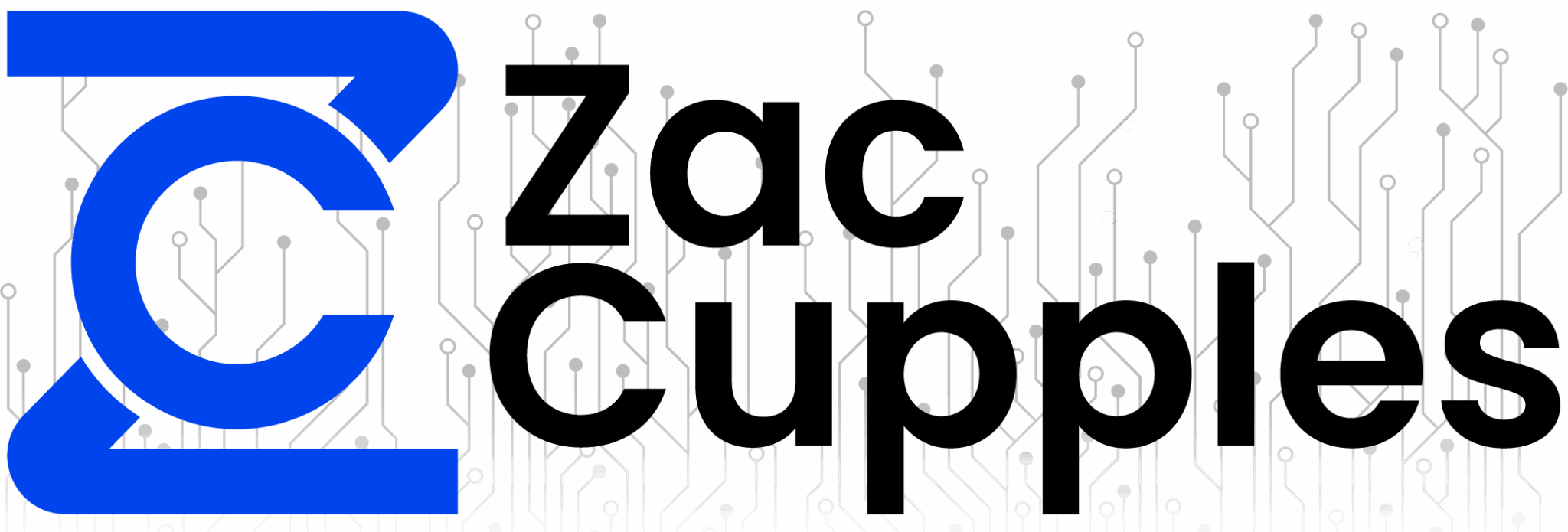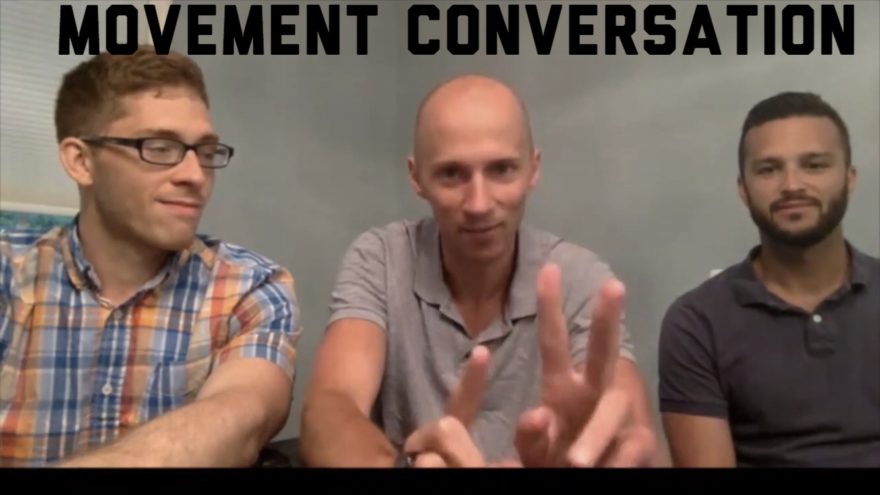I recorded a really good conversation with two good buddies of mine, Lance Goyke and Jason Byrne.
Lance is a strength coach, photographer, student, and writer. He runs the show at IFAST University, coaches at IFAST, and runs his own excellent blog and Youtube channel. He is also a dear friend of mine, one of the first people I met when I interned with Bill Hartman at IFAST.
Jason is an Athletic Trainer at Brandeis University and with the Boston Cannons. He is an avid learner, tinkerer, and phenomenal human being. I truly admire his ability to connect with others, his humility, and comfort with learning from failures. Check him out on Twitter or email him at jbyrneatc@gmail.com
We went off the top of the dome on this one, as there was no agenda. I was just hoping to help better all of our learning processes.
We got that…and then some!
Here were some of the topics we covered:
- Designing a learning process
- Test-Retest
- Failure
- Being comfortable being uncomfortable
- Connecting with others
- How to learn
- Study habits
- and more
If video isn’t your thing, I have a transcript of our conversation below.
You can also download the audio version of this talk if you’d like by subscribing to my newsletter.
[yikes-mailchimp form=”1″ submit=”Get the audio version”]
Without further adieu, here is the conversation
Table of Contents
Movement Conversation Modified Transcript
Zac Cupples: Hello you beautiful, sexy people! This is Zac Cupples with zaccupples.com, and I have two really good people here today that are going to help me sift through the best way to learn.
I have to my right a good friend, confidant, Lance Jacob Goyke, who works at IFAST, is running the show with IFAST University, and is an incredible learner in the sense that he’s had to sift through a lot of material with all of the schooling he’s done.

To my left I got a new buddy named Jason Byrne. He’s an ATC at Brandeis University.
Lance Goyke & Jason Byrne: Go Judges
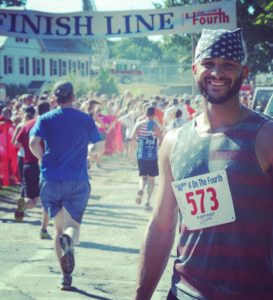
Zac: Yes, go judges, who I just met this past weekend at a class that we attended. He has a very unique perspective in terms of the way he’s approached learning the successes and failures
Jason: More failures than successes
Zac: Which that’s good, that means you’re learning; that I think would be beneficial for all of us to talk about. Let’s start this off just brief background.
Lance: all right well I have I’m about I’m one week away from finishing a master’s degree, or about two weeks away, and this will be the end of my ninth year of collegiate education.
Before that I did all the other stuff that you have to do to get to there, and I’ve been coaching since 2010.
In that time I’ve taken three or four courses a year and there’s just a lot of information. In that in that time the Internet proliferated even more than I think most people thought would happen and information is just everywhere.
You have to figure out what is it that I need to focus on, what is it that I need to say no to, what do I need to get rid of, and I’ve just tried to try to hone in that process.
I’ve been tutoring and mentoring to try to help other people with that process.
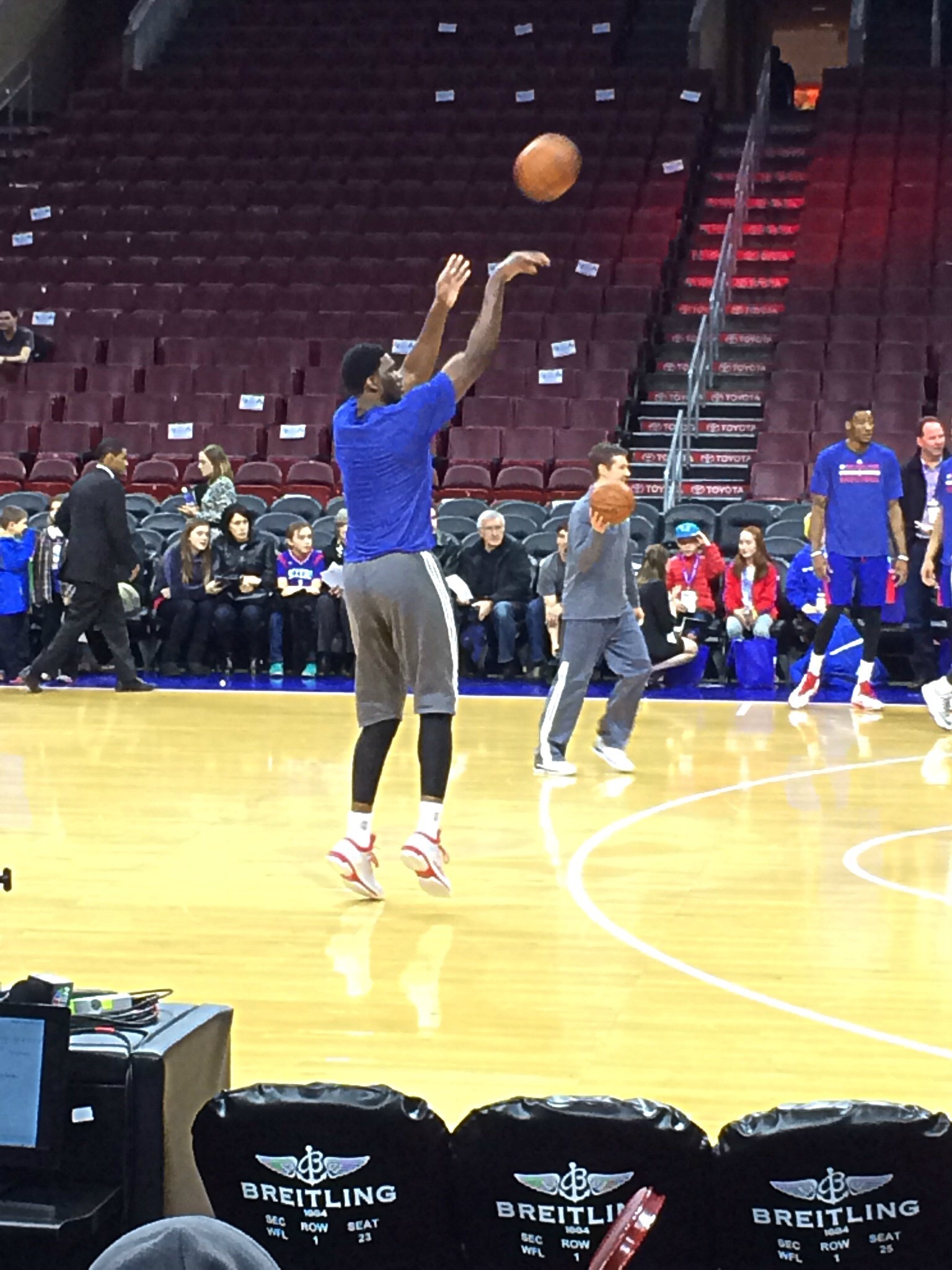
Jason: Yeah that’s good. I’m an athletic trainer by trade and the world of strength conditioning and physical prep is somewhat new—five years or so now I guess being a coach—I don’t think I think like a traditional strength conditioning coach, which may be good, may be bad who knows; well I guess we’ll figure it out the next 20 years right?
I think for me the biggest piece is I’m forever a student. The idea that learning finishes and stops and ceases when you finish your education and when you get your degrees is just not comfortable for me.
I like the idea, and one of the things that we’ve been talking a lot about, is just getting comfortable uncomfortable. Kudos to Bill Hartman on that one for sure, and I just just never want to stop learning. I got two people next to me that made that easy for sure.
Zac: Awesome, awesome.
There is no agenda to this talk so who knows where this is gonna go but hopefully it’s fun.
You guys have a topic that you wish to learn about. Where would you start?
Zac: Let’s say let’s say you have a problem and you need to help client X and it requires you understanding Y domain in order to help client X. What does your process look like?
When you’re trying to find Z, what is your search process? How do you approach learning that topic? And then let’s talk about execution. So seeking, learning, executing.

Lance: So for seeking I need to find what Y is. I need to be really comfortable in whatever tests that I’m giving a client. I need to be really comfortable with what I’m seeing in a client.
I think one thing that it’s easy to do because you can be in the gym for hours upon hours upon hours and it can get really boring. You can lose sight of the these specifics or the minutiae maybe, and I don’t mean minutiae in a bad way.
There are some very subtle things—compensations maybe—that a client will do that can tell you a lot. I like to just put clients in different scenarios and then see what might uncover itself.
So if I if I put you in a push-up or whatever, that might be what collapses your low back for example.
For learning, I have to dissect what’s going on. So for me, I always go back to physics and Anatomy, and depending on the problem maybe physiology, but basic science in general because that’s where my mental model is. I’ve got tons of years of school and I just I really think it helps.
In the case of a push-up, maybe somebody’s crunching a lot so now I have to start thinking what’s going on? So I look at the low back and I think “okay well the low back looks really steep so what’s going on there?” Well, that’s lumbar extension. What happens to the lumbar vertebra when they extend?
I kind of go through this thought experiment of some sort well I think about what’s happening at the bony joints and then I’ll layer things on so then I can layer on the ligaments, and I can tie those bones together, and then I’ll layer on muscle, and I’ll say okay well what are these muscles doing? And then I can lay on the nervous system so what’s turning on these muscles and I like to take it from a layer approach.
Everyone talks about pyramids. You lay your base foundation, and then you lay something that’s still important but maybe a little less important than the base, then you lay the next layer, and then the next layer, and the next layer.
So in this example, let’s say low back is sagging and they are crunching, and the lumbar spine is extended. Maybe we just start there. So now I have to think through okay well how am I going to neutral? I’ve got to flex the lumbar spine. Well, how would I flex the lumbar spine? I might cue taking your belly away from my thumb, and that brings their hips up and now I know I have a little bit less tension.
Maybe that doesn’t fix this crunch though, so maybe that set I’ve only been able to give one cue. So now I have to think through what this person is thinking about? Maybe they’re thinking that I need abs for this exercise because usually you do. I might over stress that for some people.
So this guy might be trying to feel his abs by crunching down a little bit because that helps him feel his six-pack abs.
When I say abs, I don’t necessarily just mean six-pack abs. That might mean obliques. I might mean external obliques, internal obliques, transverse abdominus. I might just mean position of the ilium. I might inhibited posterior pelvis.
I might even just ask them “what do you think about when you do that exercise?” Client might say: “I’m really trying to feel my abs and try to push real hard.”
Boom I got it! So don’t worry about your abs at all. I want you to just relax them as much as you can. I just want you to keep your hips up and then they have them do it again. It’s usually good enough there.
Afterwards I might need to cue a little bit more of a reach but that would be how it worked through finding a “Y” and then from there I just think about what happened—what went well? Where did I go wrong? Why was that a problem in the first place? Usually it’s just because of their physiological state that they’ve come in with. But sometimes it’s something that I did and that could be that could be frequent even.
So I can just play that back—where did I go wrong and what will I do next time?
Zac: So you’re continually reflecting upon each each decision that you make—each outcome, each cue—and drawing from your already established knowledge base to determine what the next step is.
Lance: That’s totally fair. We tell our interns test then retest.

I don’t want people to go there too soon though. I need some sort of framework that I’m familiar with—and for me that’s physics; how am i managing my center of mass for example; or biomechanically what’s happening at a joint—but from there it’s
test ⇒ intervention ⇒ retest ⇒ intervention ⇒ retest ⇒ intervention
Zac: You’re saying that we need to have established systems and frameworks in place. Not just from a movement standpoint but globally.
In order for us to pull relevant information from anything. And that’s whether it’s the way my clients moving, or whether that’s “I’m reading book X,” or whether that’s I’m a student right now and I want to pass my boards.
If you don’t have a system in place, then you’re screwed.
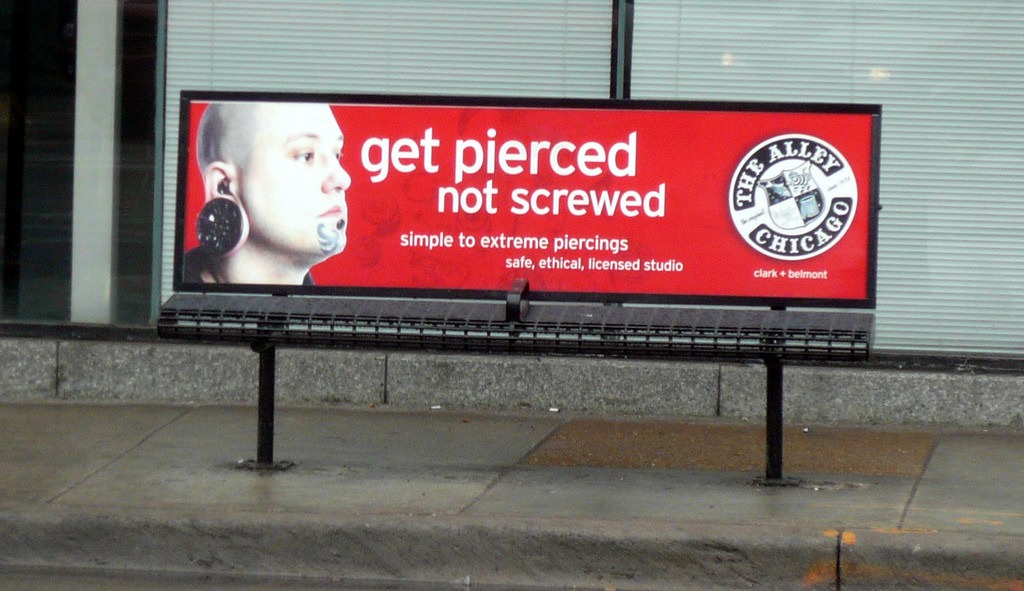
Lance: You’re just you’re floating. You’re floating on nothing.
Jason: It’s so funny. To me, Lance went down the micro.
If we take this to a macro standpoint, one of the important pieces for me is that idea of observation and testing. It almost really never ends. Every single rep of every exercise you know during your intervention that you’re doing, you’re just constantly gathering feedback. Every rep is a test.
I always call it a mental archive. I get terabytes of archived movement of all of my athletes. I can pull up an athlete’s gait pattern and reproduce it just because I have it saved.
The idea of observation never ending is crucial because then you can stitch it all together to be able to hopefully fit within your system.
If you’re going to use it should make sense. It should always make sense. Of all the movement patterns, all the compensation patterns that someone’s going to do, you should be able to stitch them all together and paint a really clear and polished picture. would you agree with that?
Zac: Absolutely. It’s through the art of reflection, it’s through the art of learning new material. It’s the art of trial and error.
How do you deal with, learn, and accept failure?
Zac: This is something I want to talk to you about Jason, the art of failure. Because I think that a lot of individuals are afraid to fail.
I’ve personally been in this case multiple times throughout my life. I just think of back to when I was interning with with Bill. I wanted to make sure I never screwed up. I wanted to make sure I didn’t let him down.
How do you deal with, learn, and accept failure? And how you draw from the failures you’ve made in your life in order to elucidate new successes or adjust your system?
Jason: I think for me one of the important pieces is the more people that you network and talk to, you quickly gain the perspective that everybody’s failing.

I think we oftentimes have a rose colored lens over the camera. On social media, everybody’s just nailing things and it’s really simple, especially for young practitioners, young personal trainers and strength coaches, to think that they’re not perfect. They’re screwing up daily. Does that mean that they’re bad?
You can have social media interactions and relationships with people, but then once you really have personal relationships and interactions, you quickly realize that people are failing all over the place, and the best people are really humble and open about talking about their failures. They’ll usually say it with a smile when they when they reflect back.
So number one is you’ve got to have a network of people that are comfortable talking about those failures. That instantly frames it in your brain that this is okay, it’s okay for me to fail.
Number two, and Bill and I were on the beach yesterday in the Hamptons, living the tough life. Bill and I were talking about how he always wants to set up his students and people underneath him to fail safely so that nothing detrimental is happening to our clients and their patients.
I don’t want to make it sound like we’re just rolling the dice playing craps every single day in the clinic or on the way from the floor, but stepping just slightly outside your comfort zone. “Let’s try this,” and know that even if they fail we’re okay. Never putting your clients in a compromising position or situation, but once you have a lot of little failures, you get a little more comfortable with living uncomfortable and that unknown and that fear of failure is going to disappear a little bit.
I think the other piece too is if you can verbally portray to your patients and clients that it’s okay if we don’t get our desired outcome in this particular intervention, the world is not going to end. You are not going to be doomed.
Often times you can feel like we’re just living on the edge just constantly, but we’re not if we do it right. That fail safely. Does that make sense? only it’s really just a perspective for me.
Just changing your own personal perspective on failure and taking some calculated risks.

Zac: I think it’s hard for a lot of people to to take those calculated risks with people when you have a paying customer on the line, or in your case, a double paying customer because of those damn student loans, and I think a lot of people are afraid to to fail in that regard because it could potentially be at someone else’s expense.
But as long as you, and this is something that I need to do better job of, frame it in the clients’ mind that we’re in this together. We may not get your goals, but even that piece of failure helps us course-correct for the next steps.
Jason: If you really do it from the get-go it becomes almost rapport building. There’s not many people that are going to have that moment, have that interaction.
You establish that failure is an option and that it’s okay, and I don’t think those people will run for the door. I think if anything they’re gonna feel a bit more empowered, a bit more safe.
Addressing it sooner rather than later can actually help you build up a ton of rapport with your patients and clients. The more you have a personal relationship, they’ll feel that you’re invested, and that you’re trying to nail every one of these outcomes. They’re going to stick around and buy in.
It almost becomes a journey for both people. I think people naturally want to be a part of something. If they feel like they’re a part of a learning process themselves, that’s something that most people are going to buy into.
Lance: You had mentioned that you want to create the environment where it’s safe to fail. If you are living that, then you are thereby creating that environment for other people, for the clients that you’re working with, and you are going to improve.
It totally validates everything that you’re trying to do.
Jason: Starting it from the gate is probably the hardest part. The more comfortable you can be initially with that, it’s the only way that you’re going to be able to make your clients and patients comfortable with that idea.
People are very intuitive if you don’t establish that and it feels like you’re just living on the edge. It creates a bit of anxiety every single time somebody walks through that door, and ultimately we want people to be comfortable and confident. Then when they walk through the door there’s going to be some progress, who knows how much or what level of progress you’re going to make. That’s a huge piece.

Lance: If you’ve failed coaching someone, you fail at giving them a cue, or you’ve failed over the last two years at giving a certain cue or fixing a certain problem and now you got it. You found a cue that works 75% of the time, then you have another one that picks up another, then you have another one it picks up the last whatever. You can you can give a cue and somebody can struggle, but you can still be calm because you have yet another tool in your tool belt that you can throw out. And just that sense of calm that you exude will calm down your client.
Jason: At the end of the day, every single client and patient is an individual path. No path, no journey, is always textbook. We naturally want to make things cookie cutter textbook. It’s our intuitive nature.
But the more confidence you instill in your patient and your client that you’re going to be able to navigate no matter what comes down the path, they’re going to walk alongside you and be an active participant in that journey itself.
That’s really an abstract way of looking at it, but that’s how I’ve tended to approach every interaction. I think that goes for whether you’re on weight room floor or whether you’re in the clinic and you got somebody on the table. I think that’s just human nature more than anything.
Lance: We can talk about exactly what you’re choosing. I think for Bill what happens is he creates this safe to fail environment, and then you you then try to have a generalization that you’re comfortable with, but the way that you fail is now by trying to take that to the next level of specificity. I can choose something different that makes me a little less comfortable.
The other way that I think you can do it, and I wrote a comfortable being uncomfortable blog post, and I did this with my sister. So she’s just finished high school and she’s super smart, so I’m trying to figure out how can I make her better than I am. How can I encourage her to be better than I am?
All I did was I said I want you to not take any class that’s easy. Every time you say this is an easy class, I want you to take honors. History honors, chem honors, writing, whatever, and she did it.
She flipped out when her junior year started and tried to drop classes and her teacher was like “no, I’ll let you if you really want to but I really don’t think you should,” and she didn’t and now that it’s over she’s like “man whatever, I’m cool with everything.”
The point being you can pick different things that are harder, but you can also just do more, go further, put more work in, and that’s the other way you can fail.
Jason: These are all to me different tactics of consciously eliminating fear of failure from your brain. I think that’s also a really important thing drive home is it’s a conscious effort to eliminate that fear of failure.
I don’t think anyone else can really drag you out of it. You’ve got to be the first one to open the door, and no one’s even going to pull you through the door once you do that.
One of the important pieces that we should probably drive home is that it’s little successes with this. I don’t think you’re saying go sign up for a master’s program you know nothing about right off the bat. Find something that you’re interested in, that you’re passionate about, and then take that first step.That next step is going to be a little bit bigger. That next step may be a leap, it may be a bound, and then hopefully we’re sprinting at some point.
Let it build.

Zac: I think another great way you can safely fail that is vastly underutilized, except by a man named Tim Ferriss, is self-experimentation.
A lot of the things that I’ve been doing with myself personally, namely trying to lose a crap-ton of weight, is I’m trying a bunch of stuff on myself and seeing how that shakes out.
Not only that but just with the learning process or even some of these strength and conditioning or rehabilitation interventions that I may utilize with my clients, and that is just seeing what works for me personally and how I can fail there or how I can succeed there and then that might give me a little bit more comfort and credence to try that with someone else.
If it fails miserably with me, or I can’t explain it effectively, or it doesn’t work, then I’m less likely to try that with it with the client, and there’s less risk involved.
I’m only risking myself.
Jason: And take that and apply it to when you go and bring it to your own patients and clients. If you have some skin in the game and you let them know that I’ve tried this, you already know how they’re going to fail. I know how you’re going to compensate because I have lived this myself. It gives that client and that patient a little notification that you’ve got some skin in the game and you’re trying this too, and if I’m a family myself and I’m the one trying to teach you, then it’s okay for you fail. I already know how to navigate past that failure because I’ve lived it myself.
Personal experiences is a profound, impactful thing to build a little bit of confidence.
Lance: As a human, I can’t trust other humans who are always right. You’re not showing me everything.
Jason: That’s a good segue into critical thinking. Someone who has lived it can talk about their failures. You know that there’s a certain level of reflection that’s happening and you know that that’s a critical thinking person.
If you’re looking for mentors, you’re looking for people to try to network and connect with, that’s a good little flag, a little explosion, a little firework to say that’s somebody you should probably grab, get their contact information and just begin to communicate and network. They’re going to give it to you straight and they’re gonna let you know you can try it but they already know it’s not going to work because they’ve failed with it themselves.
Critical thinking, somebody who reflects back, it’s crucial. That’s that’s the mindset that you want to get into.
Zac: Two brains are better than one.
Jason: And three is even better.
Zac: We will go with two and a half.
What is Critical Thinking?
Lance: Test-retest. Don’t get sucked into your biases.
Dan Ariely has a really good book called Predictably Irrational that dives into this idea of behavioral economics. He had this burn injury that covered 95% of his body or something like that, and the the nurses had to change his bandages.
Basically what happens is you’re covering this external layer of skin so you don’t get infected, and then you have to rip off a lot of what has grown so that you can apply new cleaner bandages. And so it’s just this ridiculous a painful thing and they kept telling him “if we just do it really quickly it won’t be as bad,” and he said “no I want you to go slower because this is killing me,” and he decided to research it after he got out of the hospital. He found out that it’s not whether you tear a bandage off quick or slow, it’s whether you feel you have a sense of control.
It’s can I test can I retest? Do I feel like I am making some sort of change? Do I feel like I have some sort of input into this client? Am I positively impacting my life? Or the lives of my clients? Or the lives of people watching a video with three dudes on a webcam?

Zac: So what you’re saying is the ability to critically think is about establishing some some locus of control over whatever it is you are working within?
Lance: I would say that’s about it. There are other biases that we might be subjected to.
It’s really easy to see a video, that makes sense, and now I’m going to use it with everyone.
The one the article I just saw was from Dave Asprey, bulletproof coffee dude, “Can Urine Injections Fix Your Allergies?
No they can’t.
Because that’s not how the body works, and I can think this might make some pseudo-scientific sense, but I can also come back to the base of knowledge that I’ve made. Our pyramid that we talked about earlier. I can come back to that and then I can re-evaluate it. I can think “okay so why doesn’t this make any sense?”
And I can say what am I going to do instead? Well, I’m going manage an inflammatory response. what is the thing that’s causing my allergies to make it worse well? I’m going to avoid those things get to the mechanism.
Jason: I’ve always used a different analogy. I’m an old soul, fair warning full disclosure, I’ve always thought of it from the sense of a debate team.
If you study debate teams, and they used to be a lot more popular than they probably are now, there may be some Ivy League schools, before they could begin to make arguments and support their own stance, step one is to step out of those shoes and know your opponent’s stance. That to me is foundational.
If you’re going to critically think, you have to almost have a sense of empathy. You have to have that ability to kick your shoes off, find a new pair, and slip them on, and then fully understand every piece of that argument before you can decide which one am I going to roll with going forward.
For the young strength coaches, or anybody, any the young humans out there, developing empathy earlier rather than later is a huge skill. A critical skill, no pun intended.
You have to have that ability to step out, throw a different lens on, look at something from the opposite stance, and see which one has three legs with the tripod to stand on.

From there you can move forward, and that to meet has always been the most important piece.
Zac: So then let me piggyback on that from you, Jason. How do you acquire those other lenses given that we know that we all have our biases? How do you go about personally recognizing that I am biased here, and then how do I find a counterpoint to counteract those biases?
Jason: The first step has to be a bit of humility. Do you have the ability to say I maybe don’t know anything? Maybe don’t have a clue what I’m talking about? And then all of a sudden you have the free rein to really uphold and hold some other stance and throw that other lens on.
I think everything starts there. I love people. I just flat-out love all people, and I want to find a new pair of shoes, but I want to know who’s wearing them? Whose feet am I taking those off of? And then I just like to immerse myself in that world.
Your network can almost never be too big. A network of great, true, honest, and high character people can never be too big.
Immerse yourself in as many different environments and throw as many different lenses on as long as you can.
I totally understand that this is easier said than done, and I’m not trying to sit up on a high horse or anything like that, but I’m a naturally inquisitive person. I just want to know what people think.
I always use the analogy I just want to take out some electrodes; just stick them to that bald head and just throw it on an LED TV and just see what’s going on in there.
Be fascinated by the way that other people are thinking. The way that people might be perceiving things.
Isn’t that one of the beautiful things? We can have a single single glass of water here and you may look at that glass of water completely different than maybe not just necessarily in the fact that it is half-full half-empty, but really truly be able to immerse yourself in somebody else’s world.
It goes back to that debate team analogy, that you’ve got to understand something now. It’s about people you know.
I’m not a great reader, and I fully admit that, but I like human interaction and the way that somebody can describe something—subtle nuances of your body language, tone of your voice—that’s gonna give me more information about the stance that you’re trying to take and uphold than anything else.
Maybe you do it by reading, maybe it’s Googling the hell out of one single topic and that’s okay. For me, it’s it’s more about people.
At the end of the day does it matter? Nope, because it’s about the outcome. It’s one thing to critically think and question everything without the purpose of getting down to the end of the road and getting to the outcome that you’re looking for.
There’s some people that just like to pick up a big ol’ spoon and stir the pot, and that’s not as productive because you’re not working towards whatever the outcome, whatever the information is you’re trying to learn, or in this stance you’re not learning what someone else’s true lens really is. You’re kind of just asking a whole bunch of questions that get in the way.

Zac: if your goal is stir the pot, you’re not helping other people.
Jason: It just muddies the water. Sometimes we’re trying to stir some things up off the bottom of the pool, and then sometimes we’re just muddying the water.
Keep a singular focus on what is it that you’re trying to learn, and don’t ever deviate from that path.
Lance: People will tell you a lot just not with words, but just by watching them.
Jason: I totally agree. Stepp in some different shoes, even if their size 15’s. Doesn’t matter. Just get in there.
Zac: This is even transcends critical thinking, this is just developing relationships with people like. Maybe it’s not critical thinking that we’re talking about, but it’s just talking. It’s just curiosity.
Lance, if I’ve never met you before, and I always come in with the framework even if we’re not talking about the things that we are mutually interested in maybe I don’t even know we have a mutual interest, how can I find out what makes you unique and interesting?
When we say that someone is boring, maybe you just suck at figuring out what’s interesting about them.
Lorimer Moseley talks about the boring talker, and you know what Lorimer? Maybe he’s not a boring talker. Maybe you just asked the wrong questions to find out what makes him an interesting talker. We apply that concept to any domain; whether we’re trying to learn a topic, whether it’s I’m trying to learn about someone, whether it’s really anything.
Just be curious.
Jason: You touched on something that was interesting to me. I don’t think there’s many people that if you genuinely go and call someone up, maybe you stop by their clinic, stop by their gym, their weight room, whatever the setting, if you go and really come there with hubris and humility and just say “I just want to learn,” I think that creates a really comfortable environment for someone to not feel threatened and really tell you what they’re doing.
But if you go and you’re just there to try to stir the pot, I think a lot of people are going to shut you down. But if you go and you’re just like “look I just want to sponge up as much as I possibly can. Maybe if I take one or two things I’m not trying to steal everything that you’re doing.” if I take one or two golden nuggets away from this and people really feel that from whatever your initial interaction of reaching out to people.
It’s easy to feel scared about that, but if you come with humility and sincerity, I think people are going to be way more likely to say yeah come on in.
It’s important to not make anybody feel threatened, You’re not in there just to you pick apart every single thing that they’re doing. That’s crucial.
Zac: Even to go further, how can I help them? How can I help you when I go into some type of mentorship standpoint. Because if I can say how you can benefit by by us connecting, or us interacting together, I think people are going be more apt to helping you out.
I always think of it like “let me help you first” before I try to help myself.
Lance: I think that’s the first mindset that you should have because it takes care of everything else.
More often than not, not that many people are really going to sit there and take advantage of you, so if you can just be generally cool dude or chick, or helpful, or whatever, good things will come from that.
Jason: Get into the situation trying to create a symbiotic relationship as opposed to a one-way street.
Lance: The sum is greater than the whole of its parts.
What Do Your Study Habits Look Like?
Lance: Repetition. Hard work. Lots of doing it.
I struggled a long time trying to find the perfect method for absorbing information right away, and that method doesn’t exist. You need to just keep going. There is no book that I can read once and be like “oh yeah I remember all of that.”
Zac: Unless you’re Eric Oetter.
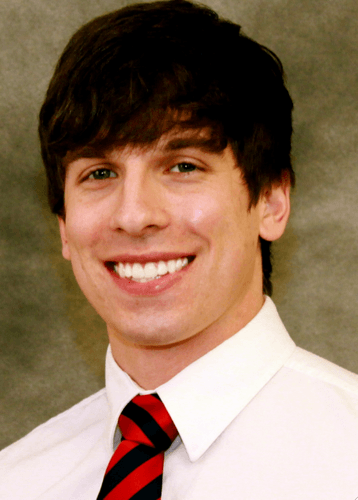
Lance: Well exactly that dude is a freak.
We say that, but Eric puts in a lot of work he he’ll read the book, he’ll re-read sections, he can tell you the page number that he read something on. He just dives into it.
So if I’m trying to learn something for the sake of working with a person, I have an end goal in mind.
This weekend we we talked about linear speed, now I’ve already written a program that incorporates some of the stuff that we’ve learned, because now I can apply this. Now I can put this into action and I can see where it fits into what I’m doing. It takes me to this next level.
So you have this pyramid style of Can I understand it? Can I comprehend actually what’s being said? Can I apply it to what I’m doing? So that’s where I’m trying to program something, or then can i synthesize my own thoughts or anything about what I’m doing. There’s these layers until I become Maslow’s self-actualized coach.
But for school, it’s different. Because now I have a clear deadline. I have my test on Friday or whatever for that case, and I guess it goes with coaching too, but it’s early and often.
Just to come back to the repetition standpoint, I want to, I need to, go layer by layer. I’m going to go broad to specific. Having been in school for nine years I can pick up the broad pretty quickly, because everything fits into stuff that I’ve already heard before. Now I can make it stick a little bit better by going further.
So if my test is on biochemistry, on some sort of protein mechanism. If I understand the shape and actually how a protease, chymotrypsin cleaves some proteins, then I can that it’s working for these proteins and that’s it’s changing its shape around this and that it’s causing chemical reactions to cleave bonds, and that’s how it changes these proteins. If I go further, then I can understand the backpedal a little bit better.
Jason: If we keep that sort of idea of a book, let’s take the macro perspective of it. You read a book once, understand that if you’re really truly invested in your own professional development, your own mental development, that the next time that you go back to read that book you are technically a different person.
Once you start this snowball of developing yourself as a human being. You read it five different times over your lifetime, you are going to have five different reading experiences, and that’s key.
If you stay the same exact person, you get stuck in the only system, and the only information you know is whatever you took on your tests, and your boards, and in your education, you can read the same book five times once a year and you’re only going to have the same experience.
But as long as you’re continuing to grow and continue to understand other people, I’m gonna have a different perspective. I’m gonna takes another little golden nugget.
There’s so much to extract from all the information that’s around us, but I think you’ve got to have a really wide and broad variability of views; a whole bunch of lenses to be able throw to throw.
Zac: Let’s now get specific. What does that reflection piece or those layers look like so when you have a test a month from now. what what do your study habits look like? What are those specific steps that you use to perform well on game day?
Lance: So I had a class on developmental anatomy where we did not have a teacher. We taught everything ourselves when we met every two weeks for an exam or for class.
So we got two or three chapters to read I’m going to start reading it. I’m going to highlight anything that seems extra important. I’m going to look at the figures. I’m going to make sure I understand the figures because generally if a topic is important enough to make a figure for it, it’s really important. So I need to make sure I understand the figures. I’m going to use the text to supplement that.
To tie this into developmental anatomy, say I have a figure of embryo developing, and everything’s color coded. The different types of developmental tissues are color coded. I can use that color coding with the text so then when I go back through it I can easily see what I’m doing.
I don’t have a specific color that like I’ve heard before that red means this is a hot idea and this is a good, so I don’t really do that. All I do is try to group them in the colors.
I asked Bill one time what does audition looked like? What is hearing? What is sound? He sent me this article of Eddie Van Halen and his Brown sound, which was what his tone was called. So now sound is brown.

I’m going to go through that first reading as quick as I can. If I’m not clear on something I’m going to go to youtube, or I’m going to go to the professor who’s lecturing, or whatever.
Ideally if this is a class where I have a lecture, sure I’m going through the book first. Then I’m listening to the lecture so then I’ve already had two exposures.
During the lecture I can try to finish sentences so I get a better idea of what I already understand, and don’t need to spend any more time on, and then what I need to focus on.
So we’ve got our first read, and we’ve got our highlight, and we’ve got our lecture or supplemental video, and then if I can I’m going to try to do some practice problems because now I need to start working higher on that pyramid. I need to start applying this, and now maybe I need to start synthesizing some things.
One thing I’m doing with our buddy Gabe, who I’ve been tutoring recently, I’m helping him understand some more. He hasn’t had a background in basic sciences, so right now he’s taking physiology because I gave him a little pretest and I thought that was where he was weakest. So he found out his weaknesses physiology now he signed up for a free Coursera course that he’s doing and anything that he has gone over when I what I tell him is he’s got these lectures from Coursera he’s got a book that I told him to buy that I thought would be a good supplement for more specifics—we go to more specifics to understand the general better—and he’s got those things.
So once he goes through all of that, then I tell him because he’s struggling a lot with, he’s been around a lot of good information but he hasn’t synthesized a lot of it on his own. So what I have him do then is write out of paragraph, just a one page summary on the visual vestibular ocular reflex, so I had him go through VOR. We haven’t gone through like brain stem quite so much, but he understands vision a lot better now that he understands how it interplays with the the vestibular system and the muscular system.
I think that if you keep layering on these different types of studying, I can’t just read a book and know it honestly. The things that I remember from a book I’ve read is only because I thought it was really cool and then I saw someone later that day and I told it to them.
When studying for example, I’ll find a friend who knows who I am and I’ll text them a paragraph of just incomprehensible science talk, and they’re like “Oh God, Lance is at it again,” but it’s a good way to apply it. Practice testing. Test-retest, it’s the same thing.
Test-retest becomes really good because now I can pull things from my brain. Instead of looking at something and saying “oh that makes sense,” that’s not the same as knowing something.
So I could pull something from my brain, and if I can’t, then I know I did spend more time and then I repeat until the actual exam. I’ll use the actual exam. I don’t really care about my grades so much, so I’ll use the actual exam to learn more things, and I always try to review the the exams that I’ve been given as long as I have the ability to.
Zac: How often would you say you review the material say over the next few months? Are you reviewing that topic?
Lance: Probably once. Maybe once. The issue that I run into is that there’s more to do, so I’ll just try and go forward.
Zac: [Jason], what is your learning process?
Jason: I do benefit from writing things out and putting them into my own words, but I’m way more verbal.
As soon as I learn something I immediately want to send like a crazy rant text. It’s almost incoherent probably the first time out.
Lance: But it has to be!
Jason: Yeah well because you’re gonna reorganize, and for me I think that the most effective skill is to teach it. Hopefully I can teach something to intern students that we have at Brandeis or with The Boston Cannons too, regardless of the setting I have to go teach it.
Sometimes it falls on people who are not really interested in learning what I’m talking about, but I have to verbalize it. It’s the only way for me to organize things clearly and just stitch it together and line it up. Because you may think you know it and I’ll pause, restitch, and deliver it a different way.
It helps me to write it out, but I have to talk through it; that’s the most important piece for me.
There’s different ways to go about it, and I will say this; if you’re somebody who’s like me and you’re a little more verbal and interactional with it, I think there’s still benefit from being around someone like [Lance]. I’m going to get that analytical lens just a little bit deeper. It’s not a strong point for me. It’s one thing to work towards your strengths, but I think you’ve also got to continuously be picking up your weaknesses and trying to develop that part of of learning.
Lance: You can get a deeper understanding from doing it.
Jason: You’ve got to get dirty with it. Lance gets dirty with information

Zac: That even goes back to the point you made about in terms of understanding problems from many different lenses. You have your learning lens, but then also interacting with a guy like Lance who learns a little bit differently than you, only enhances your capability of understanding.
It’s really the same thing. It’s not just critical thinking. It’s critical learning. It’s interaction. It’s all of these things. It’s all the same process.
Jason: Yeah it is. And the real tie together between what you and I just talked about is the idea that in both of those scenarios, you probably need to fail. Test-retest.
There’s a reason [Lance] keeps saying test-retest, test-retest, and it’s because there is failure involved in both methods, and it’s coming together with an idea; grasping a concept, applying it and understanding that the first time you do it, you’re probably gonna have some “oh crap” moment, and that’s okay.
Just be confident in your ability to navigate down that path and navigate down that journey; to continue to move towards the outcome.
Sum Up:
This was an awesome conversation where I learned a great deal about what it means to effectively learn, and have effective processes to develop better understanding of all new material.
To summarize,
- Develop a systematic approach to solving problems
- Be comfortable being uncomfortable
- Don’t fear failure, embrace it
- Practice safe failures to enhance outcomes
- Self-experiment
- Effective critical thinking involves a locus of control, empathy, and relationships
- Review topics from as many angles as possible
What’s your learning process look like? Comment below and help us all get better.
Photo Credits
